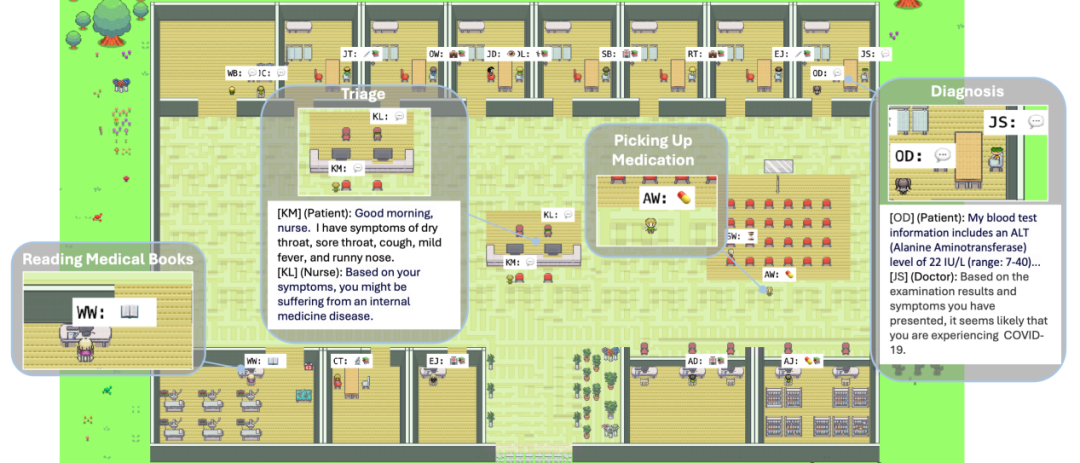Tsinghua University's Institute for AI Industry Research (AIR), in collaboration with the Department of Computer Science and Technology at Tsinghua University, has developed the virtual hospital known as Agent Hospital. They introduced a method for the self-evolution of medical agents, called MedAgent-Zero, which generates vast amounts of unlabeled data within the virtual hospital, allowing medical agents to continuously enhance their healthcare capabilities, validated against real-world datasets.

In Agent Hospital, all patients, nurses, and doctors are represented by autonomous agents powered by large models, simulating a closed-loop process that encompasses pre-hospital, in-hospital, and post-hospital stages, including illness onset, triaging, registration, consultation, examination, diagnosis, prescription, rehabilitation, and follow-up. The Agent Hospital simulates the disease onset and progression of virtual patients based on knowledge bases and foundational models.
Virtual doctors learn (by reviewing medical literature) and practice (through interactions with virtual patients and making medical decisions) within Agent Hospital, continually refining their experience from successful cases and reflecting on lessons learned from failures, resulting in a sustained improvement in accuracy across multiple treatment tasks. After diagnosing nearly 10,000 virtual patients—an endeavor that would take human doctors approximately two years—the virtual doctor surpassed the best existing methods on the MedQA dataset's respiratory disease subset, achieving an accuracy of 93.06%.
This research, with Assistant Researcher Ma Weizhi and Professor Liu Yang, Executive Dean of AIR and Deputy Director of the Computer Science Department, as co-corresponding authors, has drawn extensive attention and discussion from the global artificial intelligence and medical communities since its publication on arXiv.


